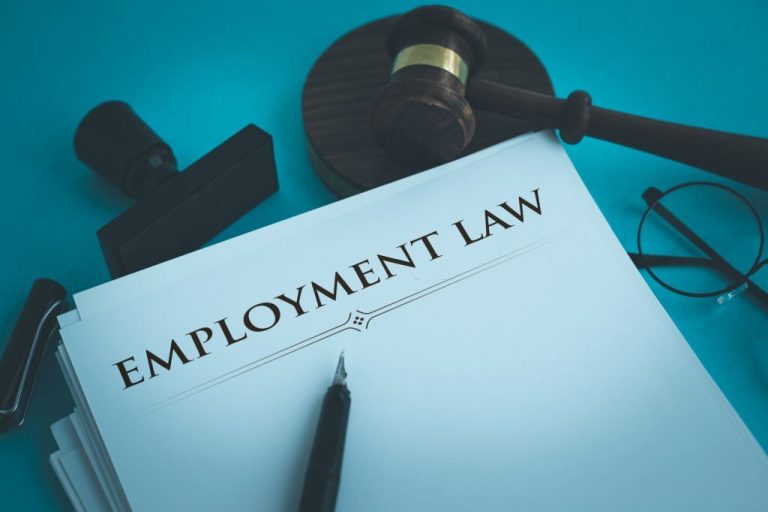Employer Imposing Disciplinary Measures in the Workplace on an Employee for Discrimination and Misconduct in posting racist comments online
The deplorable prejudice displayed by a discernible minority through physical violence, property destruction, and online posts has overshadowed the joyous moments when our men’s football team advanced to the Euro 2020 final and Lewis Hamilton won the British Grand Prix.
We’ve seen instances in the media of people being “outed” for making racist remarks online by anonymous bystanders who were able to locate their LinkedIn profiles and then get in touch with the appropriate businesses to demand that the employee in question be fired. Sadly, this is not brand-new. What can a group do, though, if it wants to show that it opposes racism and discrimination in these circumstances?
Why should employees take disciplinary action?
The way a company handles situations like this communicates a lot about its ethos and culture. Not only is it morally right to take a clear stance against racism and discrimination, but it can also boost employee trust in the company, helping with both staff retention and recruiting quality candidates. Additionally, if the person is recognised as an employee of the company, this could harm the company’s reputation in general and its relationships with staff members, clients, and customers. A good example can discourage others from using racist language online.
Can you discipline employees for personal social media posts?
Even if this occurs outside of work, depending on the posts in question and the surrounding circumstances, this may be regarded as misbehavior and/or as a problem for the organization’s reputation, both of which may call for disciplinary action (including dismissal).
However, it’s crucial to follow a fair procedure, investigate the incident thoroughly, have proof of the posts’ content, audience, and reach (for instance, the number of impressions a post received to show the potential harm), and most importantly, give the employee in question a chance to present their defence and any mitigating circumstances.
Is it appropriate in workplace circumstances?
For an employee’s behaviour outside of work to be the foundation for a fair dismissal, it must affect (or at the very least be capable of affecting) the employee’s employment or the employer in the absence of explicit contractual duties banning such behaviour.
The employer’s ability to be determined from the posts is the first link connecting the employee’s behaviour to their work and employer. This might be the case if the employee has made it clear on their social media profiles who they work for or if the employer has been informed about the posts by another person.
A risk to the organization’s reputation would be indicated if the posts are entirely public, for instance on Twitter or on websites like Facebook or LinkedIn where coworkers, clients, or customers can view them.
When looking into these cases, the employer may also take into account pressure from other parties (such as customers, suppliers, or other employees) to discipline the employee. Please be aware that tracking employees’ online activity raises sensitive data protection and privacy concerns.
Employers must make sure that disciplinary action is appropriate and takes into account all relevant factors. Regardless of their intentions, employers are more likely to lose an unfair dismissal case if they do not follow a fair procedure when firing an employee. This could result in them being liable for a year’s wage (with a 25% increase for breaking the ACAS Code), in addition to the significant legal fees required in fighting such a claim.
Nevertheless, a tribunal can consider contributory behaviour, which in some cases could result in a reduction of the award to zero even though the disciplinary procedure used was unfair.
How would an Employment Tribunal assess the case?
The “range of reasonable responses” test is typically used in cases examining whether a dismissal on the basis of behaviour outside of work was fair.
Employers must take a proportionate view of all the circumstances in order to pass this test. Considerations that are appropriate include:
- What was the behaviour in question in the posts? Could that be considered a crime?
- Think about how the organisation will be affected, as opposed to the employee in question.
- Has the staff been made aware of the organization’s position on issues related to equality? Are contracts, policies, and training explicit on this?
- Exist aggravating or mitigating circumstances?
Making it easier to manage these issues
A clear policy that defines posting or sharing racist or other forms of discriminatory content on personal social media accounts as serious misconduct can make it much easier to defend disciplinary action.Employers should continue to take a consistent stance on these issues while also maintaining that the overall response will need to be appropriate.
It is crucial to make it obvious to employees throughout training that the employer has a zero-tolerance policy for racism, discrimination, and harassment.Describe the causes of something and its effects.
Further Information
Please get in touch with us at 0808 178 7292 if you require help on any of the subjects discussed in this blog.







